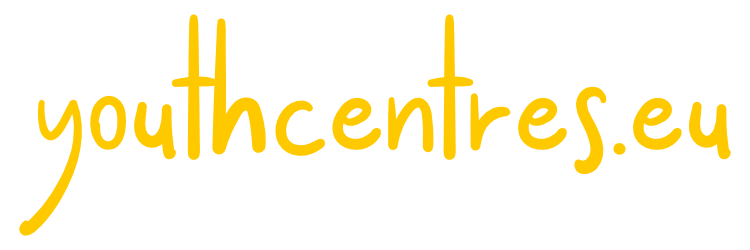Here you will find a selection of diverse studies and intellectual outputs reliable in the field of non-formal and informal youth work, youth workers and centres.
SALTO: Recognition of youth work and non-formal and informal learning
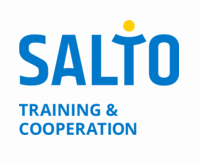
This is a report published by the Salto Training and Cooperation Resource Centre in April 2016. It presents a synopsis about the European developments on youth work from 2010 until publication.
The document is divided into three sections:
- Policy developments.
- Tools for recognition of non-formal and informal learning.
- Recent studies.
- Skateholder events.
- Other developments.
Click here to access the file. You will also find all this content on the website https://www.salto-youth.net/rc/training-and-cooperation/.
European YOUTH PARTNERSHIP’S PUBLICATIONS
The EU-CoE Youth Partnership is a cooperation programme between the European Commission and the Council of Europe in the field of youth, created in 1998. It is based on the principle of a balanced involvement of the partner institutions in terms of political priorities, management, funding and visibility. Along these years, they have published many papers, researches and handbooks and enriched the youth work field.
- Youth Knowledge Books. The youth knowledge books are the outcome of research seminars and expert workshops on priority topics of the EU-CoE Youth Partnership. Many of them develop the history of youth work in Europe, others focus more on social and policy issues.
- T-Kits. The training kits are thematic publications written by experienced youth trainers. They are easy-to-use handbooks for use in training and study sessions. Always using Youth Work as the common theme, the topics they go through are divers: Sustainability, transforming conflict, educational evaluation, funding and financial management, intercultural learning, etc.
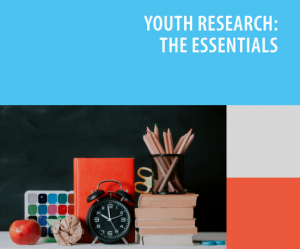
- Youth Research: The essentials. This report was developed last June 2019 by the Council of Europe and the European Commission in a partnership on youth field. As a short document, it does not intend to present the current state of youth research or use it as a display case, but to show to the reader an easy and quick understanding of the purpose, scope and usefulness of research on youth.
It answers simple questions as what youth research is, the definition of youth, the need for youth research, or the relation between this research and policymaking, among others.
If you are interested to see more publications, click here.
Universal guide and NETwork for FUTURE youth workers

Erasmus+ project carried out between 2017 and 2018 by five differents organizations from Germany, Greece, Italy and Spain, active in the field of youth work, non-formal education, mobility and volunteering programs.
Motivated for the differences regarding the recognition of youth work in these participating countries but also the chance to learn from each other, the project aims to create an international network for promoting the excellence in youth work, focused on sharing methods, tools and skills of the employees and youth workers in the sphere of Erasmus+ and beyond.
Project results:
- An online platform with different e-tools for youth workers. Go to the website.
- Country Factsheets to better understanding each one of the participating countries’ situation but for the recognition of skills and qualifications about youth work in Europe. Click here to see the factsheets file.
- Surveys to more than 100 youth workers were conducted in order to highlight the different skills, tools, good practices and national policies related to Youth Work in each partner country. Click here to see the analysis.
- Final Comparative Report for a clear understanding of youth work, starting from the local level enlarging to an international focus. Go to the report.
- A printable handbook that summarizes the project and shares many useful resources for youth workers, known or developed during the project. Go to the e-Booklet.
You will find them available in Italian, German, Spanish and Greek too. Visit eu-network.net/results/.
Mapping professional open youth work

An Erasmus+ project carried out between 2014 and 2016, composed by a wide variety of European countries (Austria, Croatia, Finland, Italy, Lithuania, Malta, the Netherlands, Norway and the United Kingdom) and led by the Professional Open Youtwork in Europe network (POYWE). This project implied ten partners from nine different countries coming from diverse settings: from the non-formal and the formal education sector to grass-root youth work and umbrella organisations as well. The objective was to gather multiple professionals on the field, provide them with a debate space and discuss main topics of their discipline.
The project ended up with two main outcomes:
- Declaration of Principles of the Professional Open Youth Work. Taking into account the diversity of backgrounds and realities present in the exercise, they generated a common profile of the definition of Open Youth Work and its main principles that could be shared in all the countries. See here the declaration.

- The LOGBOOK Platform. The main feature on it is the LOGBOOK E-Magazine, a biannual paper with the objective of not only continuing the space of debate and sharing originated in the meetings but also spreading the importance of Open Youth Work. There have not been new updates since February 2018, still we considered the previous papers of high interest. Go to the E-magazine.
Participatory Quality Development in Open Youth Work
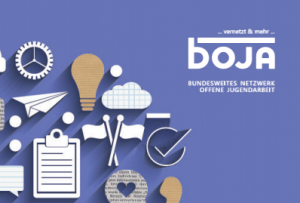
This is an Erasmus+ project, carried out also between 2014 and 2016. Under the coordination of the Austrian bOJA, two more Austrian and one South Tirol Italian organisation developed this toolkit for the quality evaluation of open youth work.
They state that the evaluation of open youth work entails three steps: A good documentation database, self-evaluation from the team and questionaries for young people and stakeholders. Here you will find the files of self-assessment worksheet and the surveys.
Youth Development Group
The Erasmus+ project “Youth Development Group – the after school social support program of adolescent youth” was implemented from October 2014 to September 2016 by the Polish Foundation Sempre a Frente in partnership with the Irish Institution Foroige.
The main goal of the project was the development and establishment of an afterschool youth program on social support for young people growing up located at the age of 15-19 years. The programme is based on the assumptions of non-formal education, psychoeducation and youth prevention.
There are two outcomes of this project:
- A non-formal educational programme, structured in twelve modules with a selection of activities in each. The program has the aim that, after finishing the program, participants would be able to develop personal hobbies, be able to use social competencies and skills in everyday’s life, or recognise their own potential, among others. Click here to see the programme.
- A guide for youth workers, dividing the file into interesting topics such as definition, types and models of Youth Work, adolescents and their challenges, the features of a facilitator, and the planning and evaluation of the youth work. Here to see the guide.
ORA: capacity building to generate innovative approaches in youth work
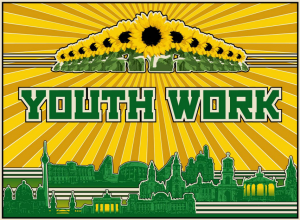
This Erasmus+ project was developed between 2016 and 2017 by eight European and Western Balkan organisations (Albania, Belgium, Bosnia and Herzegovina, Bulgaria, Germany, Italy, Romania and Serbia) that work daily with youngsters. The project was conducted to address the increasing demand for a professional standard in youth work activities and the needs expressed by several organisations engaged in youth work (Youth Centres/Clubs, youth organisations, social development organisations, etc.). As they state, these needs were identified as raising their capacity to perform better and provide more useful services (educational, cultural, social, etc.) for the young people with whom they work.
All in all, the project wanted to empower the youth work that the partnership carries out on the field in order to generate innovative approaches in their daily activities, to acquire new methods and quality tools, to provide the possibility for youth workers to develop skills and competences in order to be able to support the complex transitions young people in Europe face today (education, employment and inclusion).
To see all the activities and outcomes generated, the partners created the website oracapacitybuilding.weebly.com. The most important outcome was a handbook where they summarize all the content developed during the project with different case studies implemented by the partners. Go to see the Youth Work Handbook.
Practical Guide Through YOUth Work
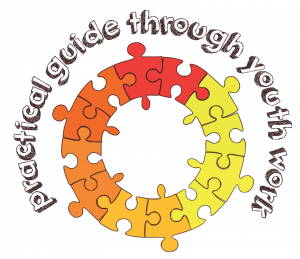
Lead by the Bosnian SEEYN, the Eramus+ project gathered eleven organisations from ten different countries (Albania, Bosnia and Herzegovina, Bulgaria, Croatia, Greece, Kosovo, Macedonia, Montenegro, Serbia and Turkey). It was developed between 2016 and 2017.
Although this project is more focus on the mobility and international youth work, the main aim of this project is to develop a set of skills and increase knowledge of youth workers and leaders, equip them with competences and relevant experience for active work with young people through non-formal education. Also training and empowering them to take the leading role and bring their organizational capacities to a high-quality level.
The project contained six activities, such as trainings, the creation of an online platform and two handbooks.
The first handbook is focused on Leadership. It is interesting how they develop its profile, from a theoretical side to a practical and emphasizes its importance on youth work. Check it out here.
The second handbook is centred on volunteers and their profiles. Even though the first goal for this handbook was the international volunteers, we consider this outcome of interest, as many youth centres use them as support staff. Read it here.
The impact of Non-Formal Education on young people and society
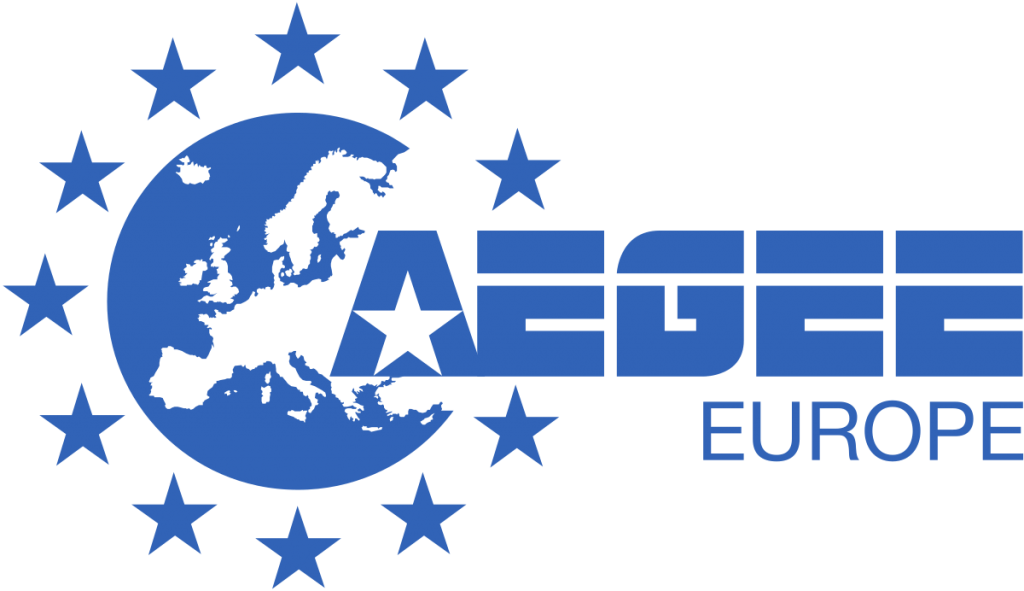
This paper was published in 2008 by AEGEE-Europe (Association des Etats Généraux des Etudiants de l΄Europe), a students organization settled in Brussels focused on promoting a unified Europe, cross-border co-operation, communication, integration among students and create an open and tolerant society.
Being an international institution for young people, its work is focused on transnational non-formal youth work and also stating at a European level. This document is a great defence of non-formal education against structured, formal education. Take a look here.
